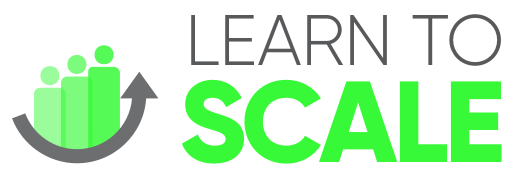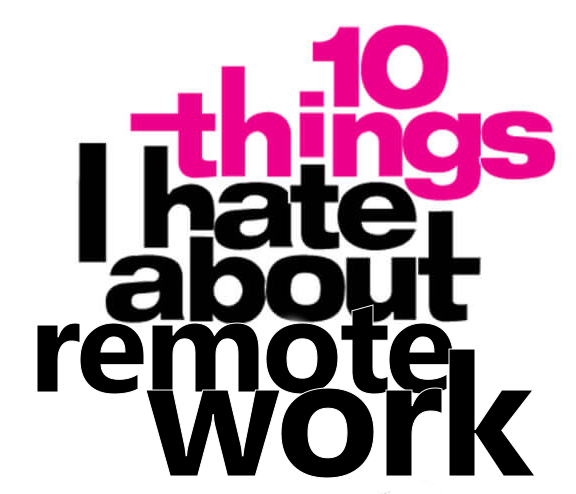The Hills Are Alive With the Sound of Coaching
When working in the learning and development space, it’s inevitable that you run into coaches. There’s a lot of overlap between coaching and training, so it’s not that unexpected. There are all kinds of coaches, in niches I never would have imagined. They’re all so very nice.
You have probably been coached before, even if it wasn’t from someone formally called a “coach”. You see it in athletics (Tom Brady has a coach), in public speaking (What’s up, Kit?), even in circus arts (Chimgee Haltarhuu has a fascinating story). A coach may help you in a lot of ways, but are you going to spend money and time on it? Is the optimization offered by a coach worth it? How do you measure the impact of having a coach? When should you get one and make the best use of it?
Let the coaches speak to this. I interviewed three coaches independently to understand what “coaching” looks and sounds like to them. Each one of them has a different angle and perspective they bring to coaching, but also some similarities in approaches. Let’s meet the stars:
Melissa Mauricio
Melissa Mauricio is a Transformational Health Coach and works with women who struggle with food. She helps them find peace with food and their body so they can feel free and live a life they love.
Al Ingram
Al Ingram helps leaders develop and utilize their capacity and potential to perform at their highest level when navigating and leading change in their business operations profession, and in their life. He’s a founder and a leadership and transition coach at AHI Leadership LLC in Boston. Al has worked thirty-five years in the software industry as a leader and critical thinker. His experience includes IT and operations management, change management, business analysis, consulting, and coaching.
Megan Fine
Megan Fine works with young professionals who are struggling with burnout, and helps them reignite their energy without feeling like they're adding something else to do their to-do list. She is the founder and owner of You Belong Here, a health and wellness coaching practice, and is on a mission to help everyone know that no matter who they are, or where they are on life's journey, they belong - in this moment, in their skin, exactly as they are.
When is it “worth it” to partner with a coach? When is it not “worth it”? How do you measure “worth it”?
Melissa: It's "worth it" to partner with a coach when you know that you can't get where you want to be on your own AND you are committed to showing up for yourself. Once you hire a coach, you are going to need to show up and do the work. If you are willing to do that to create what you want, hiring a coach will be the best investment you've ever made.
Al: Turn this around and ask yourself what’s the value to you of getting “it” – whatever you’re trying to accomplish. It may not be dollars, at least not directly. It could be higher confidence, steady performance, making a decision, reduction of stress, clarity of objectives or purpose, increased self-awareness, peace of mind, just to name a few. If you’re having difficulty defining “it” – what you’re looking for – then start with asking yourself what the value would be of figuring that out. How much of your time and resources are you willing to commit to a coaching partnership that will get you there?
Megan: It’s worth it to partner with a coach if you’ve been trying to achieve a particular goal (losing weight, committing to a regular exercise routine, eating a healthier diet, etc.) over and over without success, or if you are setting a new goal and want to be on the fastest path to success. It is not worth it if you are not ready and committed to making a true, lasting change in your life.
When should someone consider getting a coach? Are there signs?
Melissa: When you see yourself in the same patterns over and over again, you should consider working with a coach. Trying harder doesn't necessarily produce better results, so when you are doing the work and not moving forward, it's a good sign that you could use some support.
Al: One sign I see is a sense that you’re “stuck” in something, unable to see what to do to move on, or to make a decision. Another sign is an awareness that something isn’t working for you, that you’re frustrated or angry or resistant, or that you’re putting too much effort into making something just work. And, above all, you realize that it’s time to make a change and you’re willing to go for it.
Megan: Someone should consider getting a coach when they are ready to make a significant, sustainable change in their life. Without a coach, you have a default future that will arrive on its own if you do not choose to change your life. When you make a decision to work with a coach, you are making a decision to change your life.
“I don’t need a coach.” Change my mind.
Melissa: If you would like to get to the next level and you haven't been able to do it on your own, there's something blocking you or getting in your way. A coach will help you get where you want to be. You get to choose if you want that, though. If you are fine with the way things are now, that’s ok too.
Al: That’s great! I love hearing that people are reaching their full potential in their work and in their life. If you’re willing, I have two questions for you: How certain are you that there isn’t anything about yourself or your work and life that you might have missed, or have been reluctant to consider, that could start you on an even more awesome experience? What if a coach could help you get that?
Megan: You’re right - you don’t need a coach. But if you want to be on the fastest track to sustainable success, you would be well advised to work with a coach. Often, humans go about change the wrong way – we have a moment where we decide everything is going to be different. We’re finally going to change our ways. We hit the gym, or stop eating dessert, or buy that book on the Keto diet – and we stick to it for a couple months, a couple weeks, a couple days – until we mess up, feel completely demotivated, and quit. Coaches help their clients break through limiting beliefs like “all or nothing” and deprivation/diet mentalities, and help facilitate change in a way that is easy, fun, and sustainable – any other way is unlikely to work in the long-term.
What are some preferences people should have when picking a coach? What preferences do people typically have but don’t usually matter much?
Melissa: I would definitely look for someone who is trained to help you uncover the beliefs holding you back and build new beliefs. Don't work with someone who is just going to give you good advice, as that won’t produce long-lasting change. You want to work with someone who has achieved what you want to achieve. Make sure you "vibe" with them.
Al: Choose a coach with whom you initially feel comfortable and compatible and whose approach feels appropriate for you. Check their testimonials. Also, I recommend picking a coach who is accredited by an organization like International Coach Federation or its affiliated training programs, or by a college or university.
Megan: Pick someone whose energy resonates with you. Listen to your gut – your body has an incredible amount of wisdom to share with you; you just need to remember how to listen.
What’s a pearl of wisdom that you’ve personally picked up by being a coach?
Melissa: I'm consistently blown away by how much shifts once you decide to say yes to working with a coach. Even before any of the work begins, when new clients say yes, it's a yes to themselves and to owning their worth. Things begin to shift at that moment.
Al: “Our level of true awareness is directly related to our lack of judging.” When we are to any degree judgmental of others, including when we are judgmental of ourselves, we are closing ourselves from the truth and thus limiting our awareness, our abilities, and our opportunities.
Megan: I’m a huge believer in the power of awareness – of the food we eat, the thoughts we think, the beliefs we have about ourselves and the world. When we raise our levels of awareness, we tap into our personal power, because with awareness comes choice. Once we are aware of our habits of behavior and mind, we can choose to keep doing things the way we’ve always done them, or we can choose to be different. The power we have to create our experience and live the kind of lives we want to live is actually incredible. I like to remind myself, “You are always one decision away from a completely different life.”
Interested in learning more about coaching? Connect with the coaches here:
Melissa: www.melissamwellness.com or on Instagram: https://www.instagram.com/melissa.mauricio.wellness/
Al: https://www.ahileadership.com or on Facebook: https://www.facebook.com/ahileadership/
Megan: megan@youbelongherehealth.com or on Facebook: https://www.facebook.com/youbelongherehealth
Additionally, visit this great coaching resource Curious and Wise to match to a potential coach or entrepreneur.









